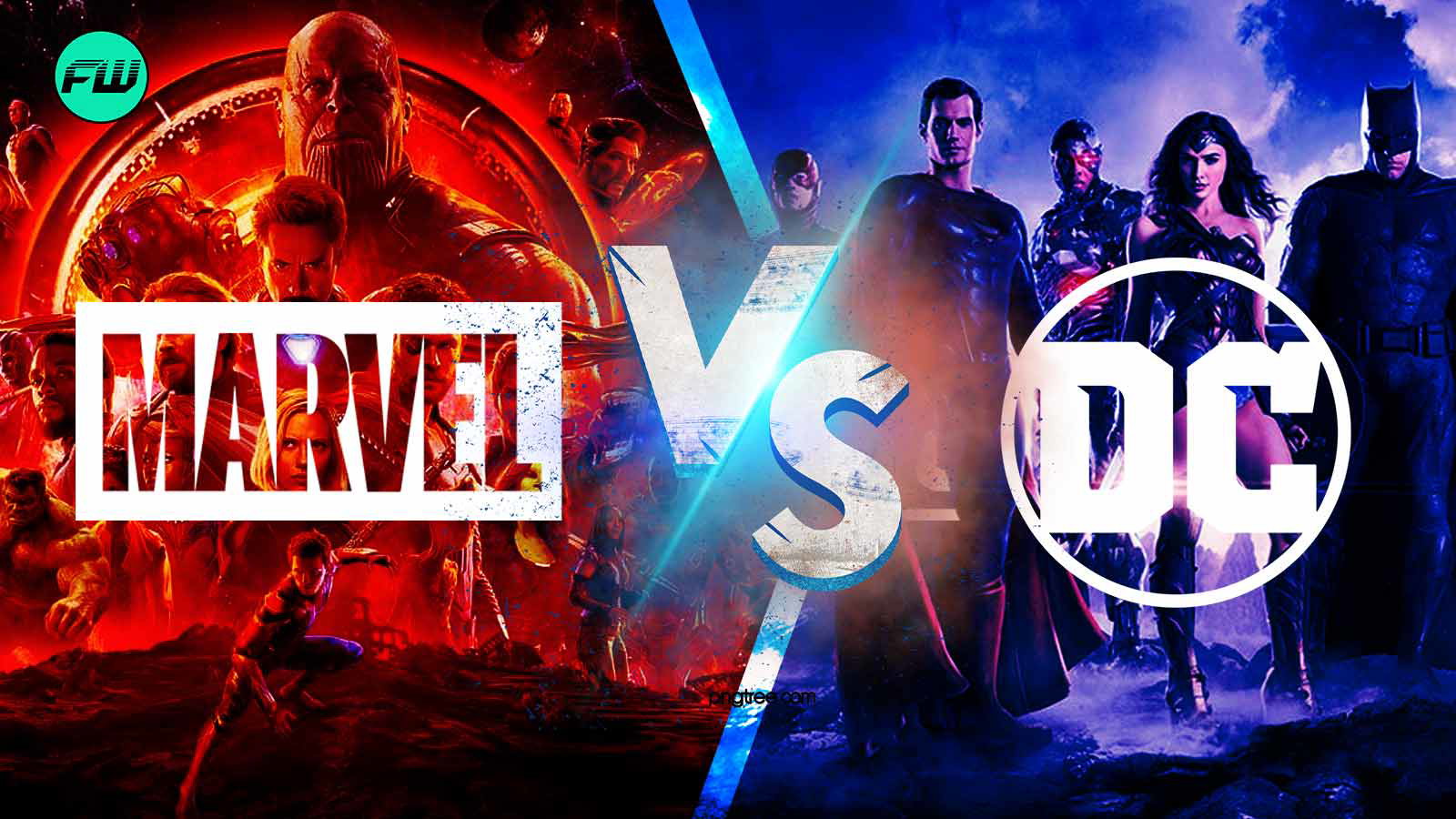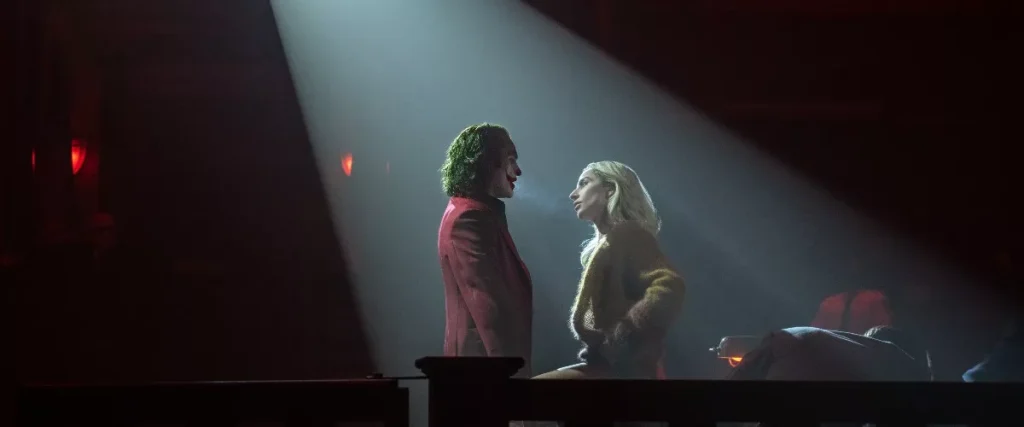With 2024 a slow year for superhero film releases, who won the box office between DC and Marvel?

The timbre around DC and Marvel has changed dramatically – it has, perhaps, evolved way more in 2024 than it ever did previously. James Gunn and Peter Safran are now at DC rebooting its film franchise with a more ‘take-everyone-along’ approach. Fans are hoping for it to be a far cry from Snyder’s DC universe, which on its best days made very little sense. A new Superman film will kick things off next year with Matt Reeves’ Batman sequel tabled after that. For television, Paradise Lost (a series about Themyscira) is also under development.
Marvel, meanwhile, is still struggling to navigate the unsettling post-Phase III seas – so much so that Downey Jr.’s Doctor Doom had to be announced to steady the sails. After the cultural phenomenon of the Infinity Saga, and the tottering Multiverse, Phase V has, until now, paled in comparison. Projects like Blade and Fantastic Four remain highly anticipated, thanks to Marvel’s loyal fanbase, and in all fairness, a return to form with Deadpool & Wolverine.

After a nauseating pace of releases though, things slowed down in 2024. At least, for the big screen. While streaming and television enjoyed its fair share of releases this year, theatres were largely kept out of these plans – even whatever little was left for big releases was put out on some platform or the other.
In a year that has been transitionary instead of enticing, there is, however, one great leveler of such conversations. The numbers chico – they don’t lie. So, how have the two giants of comics fared at the live-action box office in 2024?
Marvel movies released in 2024
Madame Web, February 14 (SSU) – Sony’s first outing with Marvel for the year was a box office bust. Released on Valentine’s Day earlier this year, Madame Web revolves around Cassandra Web (played by Dakota Johnson), a New York metropolis paramedic who begins to show signs of clairvoyance. Sydney Sweeney, Isabela Merced, and Celeste O’Connor emerge as ghosts from the past with Web safeguarding these three women. This offering is as stale as it gets.

The film failed to rake in what many would expect of a Marvel field trip. This shouldn’t seem strange. Panned by both audiences and critics, it wrapped slightly over $100 million – the same as its budget – and barely made pocket change. Madame Web made a box office collection of $43,817,106 domestically, and another $56,681,658 in overseas markets.
Check out Madame Web on Netflix
Deadpool & Wolverine, July 26, (MCU) – This is the big one. The first R-rated MCU film brought Ryan Reynolds’ Deadpool to the Marvel Cinematic Universe and reunited him with Hugh Jackman’s Wolverine. Marvel fans will be thankful for this one – Deadpool & Wolverine is an irreverent romp.

Ryan Reynolds brings his signature zingers (at this point indistinguishable from his off-screen persona) while Jackman’s Wolverine adds the much-needed Adamantium backbone. The film is more than just a joke-fest, though. It’s filled with clever cameos, deep-cut Easter eggs, and even a surprisingly soft spot for the early superhero movie era.
This had been on the radar for years and delivered for Marvel big time. Although not reaching the previous highs of Avengers: End Game ($2.8 billion on a $400 million budget), Deadpool & Wolverine on a $200 million budget raked in a whopping $1,335,672,182 ($1.3 billion) worldwide, $636,296,828, domestically, and $699,375,354 internationally. A much-needed respite for both Marvel and its fans.
Check out Deadpool & Wolverine on Apple TV
DC Movies released in 2024
Joker: Folie à Deux, October 4 – Joaquin Phoenix’s Arthur Fleck returns in a $200 million jukebox musical accompanied by Lady Gaga as his equally fractured and troubled partner in crime. Yet, while Joker: Folie à Deux is time-packed with intrigue and carried by the performances of its two leads, it ultimately feels more like a Todd Philips-WB experiment gone wrong.

While the first Joker was bold in its exploration of mental illness and social alienation, Folie à Deux gets lost in its ambition. It’s as deluded about its own existence as much as the characters. It feels like this film is dancing in circles, unsure of where it’s going or what it’s trying to say. Gaga and Phoenix bring everything they’ve got (and some more), but even their dedication can’t salvage this – a slow-burning candle that sputters out before it can light up the screen – no wonder it’s a box office bomb.
Joker: Folie à Deux, two weeks since its release, has grossed $51.5 million domestically and $165 million globally, compared to the original’s $96.2 million and $248.4 million in just three days. With a production cost of $200 million and $100 million in marketing, it is projected to lose Warner Bros. at least $150-200 million, making it one of the year’s biggest financial failures.
Although it would seem the tide may be turning for Marvel (because of their historic highs), 2024 still bore more fruit for the studio – a clear box-office win. DC’s big bet Joker Folie à Deux failed to build on its prequel’s momentum and faltered at the box office. Deadpool & Wolverine, meanwhile, emerged as a big W for Marvel even after the failings of Madame Web.
It would likely be enough to get Marvel fans into theatres for the next few releases. For DC, however, there’s still plenty of catching up – and a big clean-up act for James Gunn.
2024 was a quiet year for live-action superhero films
Many feel superhero fatigue is as real as it gets right now. Whether that’s true or not is up for debate. Perhaps, it’s more about “bad movie fatigue” than anything else. Guardians of the Galaxy Vol. 3 did great, and so did Across the Spider-Verse last year. Nevertheless, it has been a silent year in terms of film releases.
Looking at the MCU in 2025, there’s little likelihood of them actually releasing four movies. Captain America has some good name recognition, and Fantastic Four is one of the most anticipated Marvel projects. The wildcard here is Thunderbolts, which will need good marketing and perhaps some help from Brave New World to succeed.
James Gunn’s DC Universe is ramping up too, with multiple projects for next year, and even Matt Reeves’ Elseworlds Batman Universe throwing in one or two films. As many a comic book fan feels, we hope all these do well (except for Sony, seriously, they can stop—those movies are only adding to the problem without offering anything of substance).
If the studios can get their budgets under control and stop spending $200-250 million on each project (plus another $100 million in advertising), they could probably make do with the lower revenues that are coming their way. But when has that ever happened?





